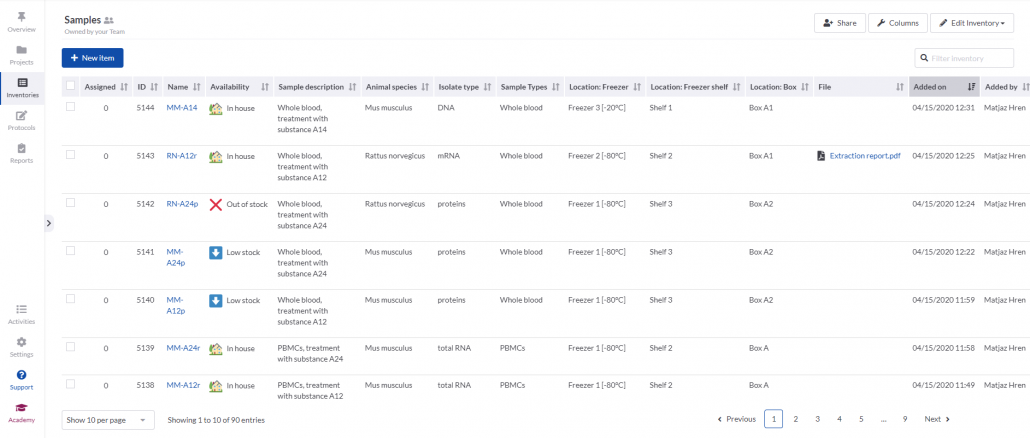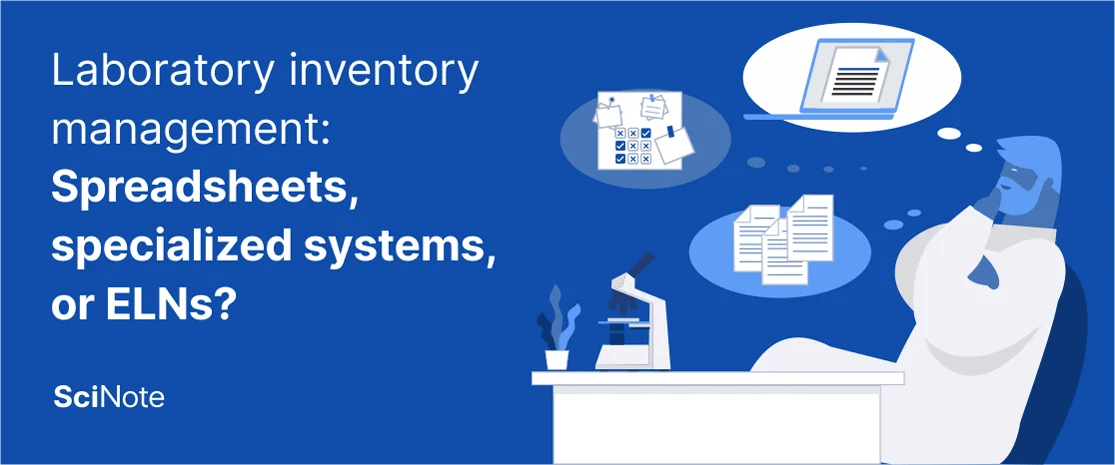In the fast-paced world of scientific research, accuracy and compliance are paramount. Laboratories must adhere to strict regulations and standards while maintaining precise records of their inventory. Lab inventory management systems play a crucial role in ensuring that these objectives are met efficiently and effectively. This article explores the importance of lab inventory management systems in maintaining accuracy and compliance within research environments.
Introduction to Lab Inventory Management Systems
Lab inventory management systems are sophisticated software solutions designed to track, monitor, and manage laboratory inventory. These systems utilize various technologies, including barcoding, RFID (Radio-Frequency Identification), and cloud-based databases, to streamline inventory processes and improve overall efficiency.
Accuracy in Inventory Tracking
Real-Time Inventory Monitoring
Lab inventory management systems revolutionize inventory tracking by offering real-time visibility into stock levels. Researchers can access up-to-the-minute data on inventory levels, enabling them to make informed decisions and plan experiments efficiently. This dynamic monitoring minimizes the risk of stockouts, ensuring that critical supplies are always available when needed most. With real-time alerts and notifications, lab personnel can proactively address inventory discrepancies and prevent disruptions in laboratory workflows.
Barcode and RFID Technology
Lab inventory management systems harness the power of cutting-edge barcode and RFID technology to streamline inventory management processes. Each item in the inventory is assigned a unique barcode or RFID tag, allowing for rapid and accurate identification. Researchers can simply scan items using handheld devices or RFID readers, significantly reducing the likelihood of errors associated with manual data entry. This seamless integration of technology enhances efficiency and accuracy, empowering laboratories to operate with precision and confidence.

Automated Data Entry
Gone are the days of tedious manual record-keeping with the advent of lab inventory management systems. These systems automate data entry processes, capturing inventory transactions in real-time without the need for human intervention. Whether it’s recording incoming shipments, tracking usage, or documenting waste disposal, automation ensures that inventory records are consistently accurate and up-to-date. By eliminating the risk of human error, laboratories can maintain compliance with regulatory requirements and uphold the integrity of their inventory data.
Compliance with Regulatory Requirements
Traceability and Audit Trails
Lab inventory management systems excel in maintaining meticulous audit trails, meticulously documenting every transaction within the inventory. This traceability not only ensures compliance with regulatory requirements but also provides a comprehensive record of inventory movements and usage. From procurement to consumption, every step is meticulously logged, facilitating transparency and accountability in laboratory operations. In the event of an audit or compliance inspection, these detailed audit trails serve as invaluable documentation, demonstrating adherence to regulatory standards and best practices.
Expiration Date Tracking
In the dynamic environment of laboratory research, the tracking of expiration dates for reagents and chemicals is critical to ensure the integrity and safety of experiments. Lab inventory management systems offer sophisticated tools for expiration date tracking, enabling researchers to effectively monitor the shelf life of materials and mitigate the risk of using expired substances. By providing automated alerts and notifications for impending expirations, these systems empower laboratory personnel to take proactive measures, such as timely restocking or disposal, thereby safeguarding experimental integrity and regulatory compliance.
Controlled Substance Management
Laboratories entrusted with handling controlled substances face stringent regulatory requirements governing their storage, usage, and disposal. Lab inventory management systems play a pivotal role in ensuring compliance with these regulations by implementing robust controls and monitoring capabilities for controlled substances. Through restricted access, user permissions, and comprehensive tracking mechanisms, these systems help prevent unauthorized access and misuse of controlled substances.
Moreover, they facilitate accurate documentation of substance usage and disposal, ensuring transparency and accountability by regulatory mandates. By centralizing control and monitoring functions, lab inventory management systems provide laboratories with the tools necessary to uphold the highest standards of safety, security, and regulatory compliance in managing controlled substances.
Streamlining Inventory Procurement and Usage
Automated Reordering
Lab inventory management systems offer seamless procurement processes through automated reordering mechanisms. These systems intelligently generate purchase orders when inventory levels dip below predefined thresholds. This automation not only ensures the prompt replenishment of critical supplies but also mitigates the risk of stockouts, thereby fostering uninterrupted laboratory operations.
Usage Tracking and Analysis
Leveraging sophisticated tracking capabilities, lab inventory management systems empower researchers to analyze usage patterns and consumption trends with precision. By harnessing this data-driven approach, laboratories can optimize inventory levels, minimize wastage, and allocate resources more efficiently. Ultimately, this leads to significant cost savings and resource optimization, contributing to overall laboratory effectiveness.
Centralized Inventory Control
With lab inventory management systems, organizations gain centralized control over inventory management processes spanning multiple locations, departments, or laboratories. This centralized control fosters consistency and standardization in inventory management practices, ensuring adherence to regulatory requirements. Moreover, it facilitates streamlined communication and collaboration among different stakeholders, promoting operational cohesion and synergy across the organization.
Enhancing Security and Data Integrity

Access Control
SciNote lab inventory management systems prioritize security through robust access control mechanisms. These systems allow administrators to assign granular user permissions, ensuring that only authorized personnel can access or modify sensitive inventory records. By implementing role-based access controls, laboratories can enforce strict security protocols and prevent unauthorized access to confidential data.
Data Encryption
To fortify data security, lab inventory management systems employ advanced encryption techniques to protect sensitive information. By encrypting data both in transit and at rest, these systems safeguard inventory records against unauthorized access or interception. Encryption adds layer of security, ensuring that even if data is compromised, it remains indecipherable to unauthorized parties, thereby maintaining data integrity and confidentiality.
Backup and Disaster Recovery
Recognizing the critical importance of data integrity, lab inventory management systems implement comprehensive backup and disaster recovery protocols. Regular backup procedures ensure that inventory data is systematically duplicated and stored in secure off-site locations, mitigating the risk of data loss due to hardware failures, cyberattacks, or natural disasters.
Additionally, robust disaster recovery plans enable laboratories to swiftly recover and restore inventory data in the event of an unforeseen emergency, minimizing downtime and ensuring uninterrupted operations. By prioritizing backup and disaster recovery measures, lab inventory management systems bolster data integrity and resilience, providing laboratories with the confidence that their inventory data is secure and accessible under any circumstances.
Conclusion
Lab inventory management systems play a vital role in ensuring accuracy and compliance within research environments. By leveraging advanced technologies and automation capabilities, these systems streamline inventory processes, enhance regulatory compliance, and improve overall efficiency. Laboratories that implement robust inventory management systems can achieve greater accuracy, productivity, and regulatory compliance, ultimately advancing scientific research and innovation.

